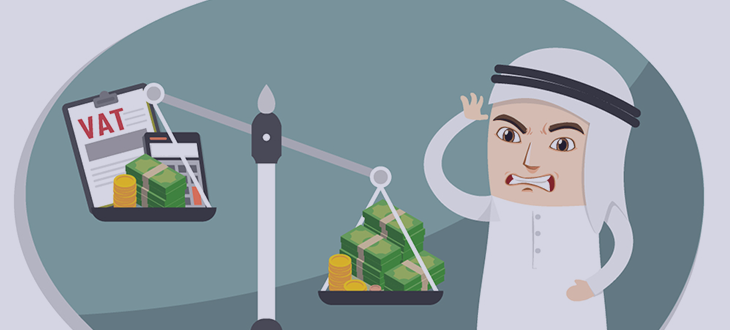The world of tax as it applies to you and your small business is an incredibly important one, and yet often more than a little confusing; one of the areas that seem to confuse most is that of VAT (value added tax). Most business owners know that they must register their business for VAT but are a little unclear as to the exact rules. If and/or when one should register for VAT is a common question that many businesses would like a simple answer to. Most accounting firms in Dubai will offer you different types of registration, so be mindful of whom you pick.
There is in fact more than one type of registration, which is probably what confuses people; ‘compulsory registration’ is, as its name implies, the point at which the law says you have to register your business. Here in the UAE, this is when the value of your business’ taxable commodities and services reaches £70, 000 in a year. As well as the previous twelve months, the law also states that if you are aware that you will reach this figure in the next month you are also obliged to register.
You are obviously not obliged to register for VAT if your business does not reach this threshold, but many businesses do choose to do so; this is called ‘voluntary registration’ and it has both advantages and disadvantages.
One of the reasons that a business may choose to voluntarily register for VAT before they reach the UAE threshold is that when a business regularly invoices other VAT registered customers they are able to claim back some or all of the VAT charged on their purchases.
Voluntarily registering your business accounting for VAT can also improve your business profile by leading other businesses to infer that you have a much higher turnover than you actually do. This will open streams of business to you from those wishing to do business only with larger concerns as they include you in the mix.
However, once you have registered for VAT you will be required to submit a VAT return each year; adding to your business’ paperwork and form filling obligations will obviously add to your workload; something to be considered if you are a small business owner struggling with an already full-time table.
It is not recommended that you voluntarily register for VAT if your only customers are the general public, who cannot claim back the VAT that they pay, as you will have to add an extra 17.5% to your prices, which could make you uncompetitive, better then to wait until compulsory registration kicks in, at which point your larger turnover may allow you other ways to increase your commerciality.
Whatever size business you have, making a decision about when to register for VAT without first sitting down with your accountant and discussing all of the options open to you would be fool hardy to say the least; most accountancy professionals have a good working relationship with HMRC and an in-depth understanding of the benefits and disadvantages of each alternative, so use their knowledge to make the best decision for your firm.
In simple terms, you must register for VAT if your business is over the VAT threshold, but if it is under it you have a choice; choosing to register voluntarily is beneficial for some businesses and less so for others, but the ways in which this will affect your own business are probably best explored by someone with an understanding of its financial history and its future forecasts.
The main advantages of voluntary registration:
If you are charging business clients who are VAT registered themselves (not the general public), then if you choose to register for VAT this will represent “money in your pocket”, as you can claim the VAT back on some or all of your purchases. Your customers will not mind as they can recover all the VAT back you charge them on your invoices.
Being VAT registered is sometimes viewed in a more favourable manner by other businesses. They may assume that you are VAT registered because you have a higher turnover, even though that is not the case. In essence, being VAT registered could mean that other organisations view your business as more credible.
If you are a business where most of your supplies are zero rated for the purposes of VAT, then it may be worthwhile voluntarily registering, as you will be in a repayment situation each month and can claim the VAT back that has been charged to you.
The main disadvantages of voluntary registration:
If you register for VAT you will be required to submit VAT Returns, and also account for all the VAT on your taxable supplies and purchases, as part of your record keeping. This extra administration can cause a drain on your time and an additional stress if you are a small business.
If you register for VAT voluntarily but your customers are the general public, then you will need to add on 17.5% to your prices; they will not be able to claim this back and therefore this represents a real hike in the cost of your services to them. Therefore, from a commercial point of view, this may not be a good idea as you may price yourself out of your market.
Like all other decisions, as regards tax and accounts compliance, you should make sure that you fully consider all of the consequences before you make a final decision. It is crucial that you consult with your accountant, so that he can look at whether or not it would be beneficial for you to voluntarily register for VAT based on your own circumstances.
So, you’re looking for accounting companies in Dubai, or more specifically a VAT accountant, then check this out!

